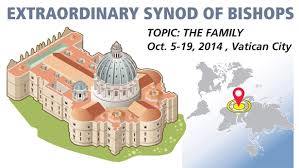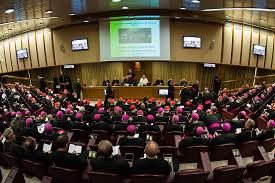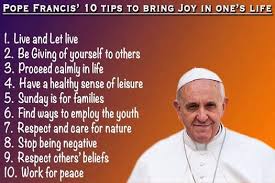Just recently I watched what we call in the Focolare Movement “the Link Up” that shares the recent news of what is happening all over the world. It comes over the internet and includes short filmed extracts of events or interviews concerning the large number of ways in which people are trying to promote unity in many different situations world-wide.
One of the challenges that we face in the Church is how to help those who feel unworthy of God because of the events that may have overtaken their lives or even because of the choices they have made and into which their lives have become locked. They know they are not in tune with the teaching of the Church and they can feel cut off and isolated, wondering if they can have any meaningful relationship with God. Yet do we not all believe that God is in every person and that each human being is made in His image and likeness, even though, for us all, that image is to a greater of lesser extent obscured? Do we not also believe that God has permitted things that may be outside the norms of Church life or even the values of the Gospel? In other words God himself is in some way behind the disordered lives that many people lead, including people in the Church. Do we not sometimes meet people who in the eyes of many are beyond the pale of a “normal” good life, say a person who is addicted to drugs, or who is unable to sustain a stable relationship, or maybe one who is using his or her own body for the physical pleasure of others, and yet who can astonish us with their loving generosity, non-judgemental attitudes and openness to the Kingdom? In St Mary’s Leyland we find such people coming to our door to ask for food parcels from the food bank. In Matthew 21: 31 we read: Jesus said to them, “Truly I say to you that the tax collectors and prostitutes will get into the kingdom of God before you.” As Cardinal Hume used to say, “Jesus seemed to have a special love for the crooks and the crocks”.
This must surely lead us all to reflect deeply and daily on what our attitudes to others should be and to re-examine radically how we should relate to everyone we meet.
Hall in which the Synod too place
It was very interesting and moving to hear in the link-up mentioned above about some people who had been participating at the Synod on the Family that closed in Rome on the 19 October. Family Life is well known to be in a state of great flux and change, and some would say in crisis. Catholics themselves do not of course escape from the challenges facing those in married life – indeed in a sense, for them, these are intensified! Four different people in three different situations shared their stories to put the work of the Synod into context.
- One man was married for over 30 years and has three children. His wife asked him if she could be dispensed from their married state and, out of love for her, he agreed. He has no intention of re-marrying, nor does he feel deprived or strange and has found another family as a layman within the life of the local Church and wider community.
- Another couple, married for ten years, fell on very hard times because they were both made redundant and lost all their income. In the meantime a baby was born, and in the financial crisis, with sleepless nights and the money worries, their relationship fell apart. Others, however, had experienced the same crisis yet had managed to get through it with a lot of help from their local community and they managed to support this particular couple and it seems so far they have pulled through the immediate crisis.
- Another mother was married for 13 years and had a daughter but the marriage fell apart as her husband left home for long periods and returned only occasionally. The situation could not go on and they separated. Eventually she found a companion, a divorced man, and they came together in a civil marriage and had a son. She realised that in her irregular situation she could no longer receive Holy Communion and so she goes regularly to Sunday mass without receiving the Eucharist. She does not feel bitter but just wants the Synod to recognise her status as a living and full member of the Church.
Two of the “auditors” at the Synod on the Family were Dr Jean Dieudonné and Emerthe Gatsinga from Rwanda. Dieudonné is a gynaecologist and Emerthe the wife an economist. They have four children and they adopted four more who were orphaned after the genocide in Ruanda. Apart from their jobs, they help to run engaged couples’ courses in Rwanda, Burundi, Kenya and Uganda. They brought a voice from Africa to Rome and this was their impression of the Synod:
The synod helped us to feel the enormous love the Church has for families. We could tell by the simplicity, openness and listening of the synod fathers to all that was said that the whole Church is like a family. The Pope was present throughout and his listening and attention was a lesson to us about how to be a person. We felt that we must commit ourselves even more to the families we serve to help them understand the beauty of their calling. It is so important to give time to others and to try to live for them and live with them to sustain each other. We need to learn the needs of families and be close to them.
Two others were Alberto and Anna who are lay members of the Vatican’s Pontifical Council for the Family. They are also involved in the “New Families Movement” of the Focolare, people who share their lives in a spirit of communion with other families. With their expert understanding they shared what the Synod meant for them in a short interview.
What were the most important points to emerge from the Synod?
Alberto: It was a very important event and we could see the love of the Church for the family in the first ever Synod on the Family. Also I would say it was the occasion to have a kind of balance sheet about the family through the questionnaire that went all over the world. This provided a snap shot of what the family is like in the world, and this was the basis for the first session of the Synod. Also thirteen couples were invited to take part in it, and this means that the final document is an expression of collegiality with a new vision, the fruit of laity, married people and priests.
You speak about collegiality. The press however during the Synod seemed to speak of serious divisions between the Synod fathers. Was it like this?
Alberto: No! It was how a certain section of the press expressed it. Faced with the vast diversity of challenges in families today there could not have been uniformity of view or of thought. The important result that this collegiality did achieve was a clearer pathway for people to find a new meeting with God. This was the fruit of the work done to link together truth and mercy.
Anna if you had to express briefly the contribution that New Families has made, makes and will make for family life what would you say?
Anna: Welcoming! Also accompanying. You cannot ask a person, “were you married in Church? Are you separated? Are you in a new relationship? What sexual orientation do you children have?” Rather our job is to welcome, without any pre-judgements, and to tell each person that ‘God loves you immensely,’ firstly by actions and then by words.
Welcoming because these days we see so many couples in difficulties; we must give them hope which is possible in a network of families. You can be taken out of your sense of isolation and rediscover your selves, rediscover the joy in forgiveness and understanding. When the crisis is a serious one the New Families organise ways where the spirit of communion, together with the expert advice of counsellors manages to help some couples to plan a new future together.
There is a most important accompaniment for those who are separated as has been referred to above. These people did not choose their lonely path, and there are heroic choices made by some that allows them to be faithful to the sacraments.
Also there is an unconditional welcome for those who have separated and are in new relationships. With them we are able to share a lot of the journey of life together and give them a sense of the warmth of the family of the Church and above all of God’s Love for them
I felt, as I watched and listened and later reflected, what a wonderful and inspiring new vision of God and his mercy was shown in this exposition. It has given me encouragement in the very difficult situations that also surround us in our small town of Leyland.
It seems to me that one of the unmistakeable “signs of the times” is that the Church is in need of people with a new Spirit within them, open to a new and comprehensive understanding of the way men and women in relationships belong to the Church, one which is based on God’s love and mercy for us all yet which does not choose easy options which run counter to the eternal Gospel teachings or which undermine the sanctity of married life. We need many alive Catholic Christians, alongside alive Christians of all other denominations. I could call it a larger number of “saints” as St Paul used to call the Christians who belonged to the communities of disciples that the Holy Spirit brought to birth with Paul’s help. Hopefully, the Synod is pointing the way to such a new understanding – we could call it a new theology and a new spirituality. How this should be expressed and worked out in practice will take time and patience and a spirit of dialogue, a spirit of mutual love in the Church. We should keep Pope Francis, the bishops, priests and deacons, those in religious life, and people, the whole Church in our prayers that all remain open to God and to the sign of the times.
Maybe we could set up some structures to help and support our brothers and sisters in their family challenges and use what is already available from our diocese?



